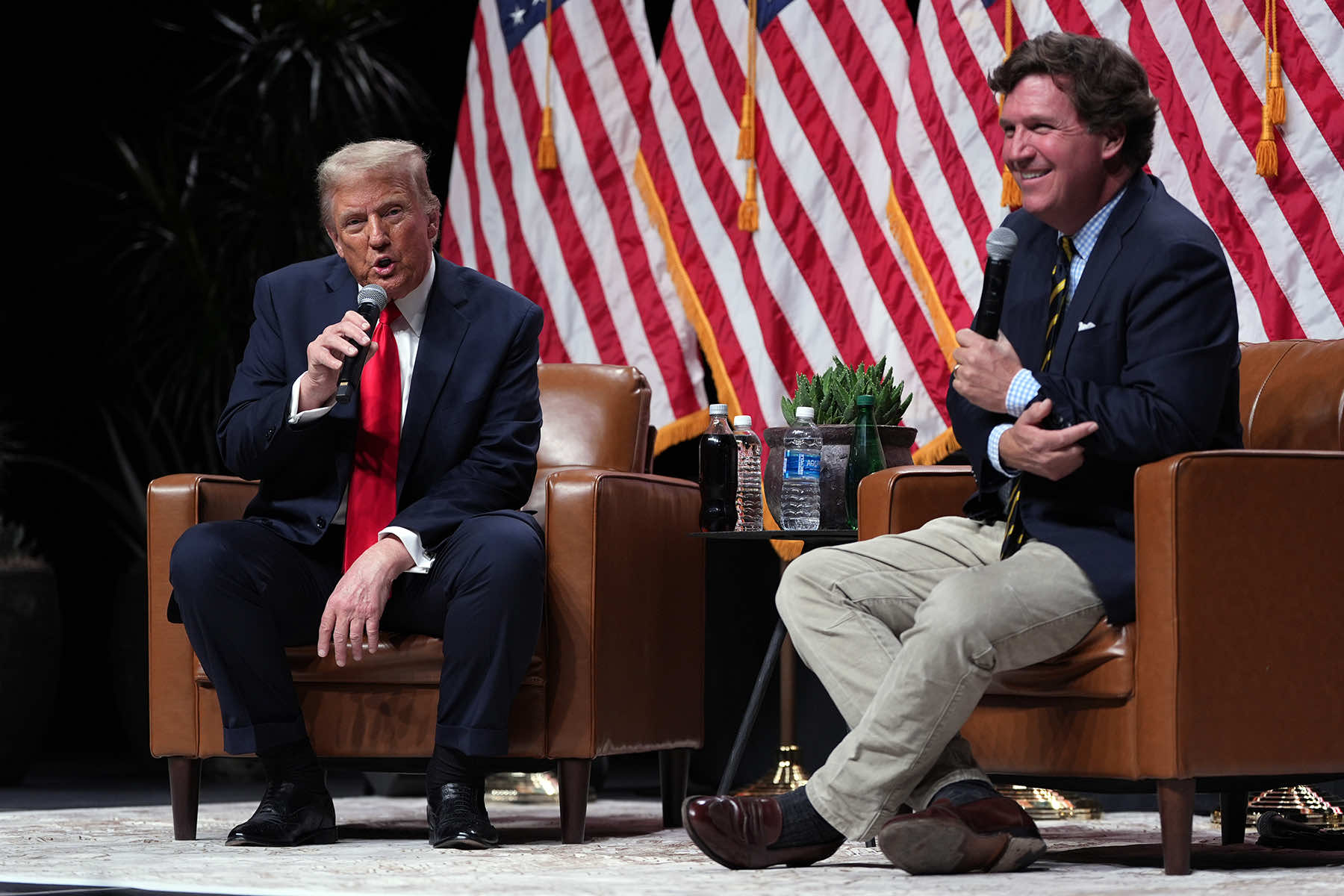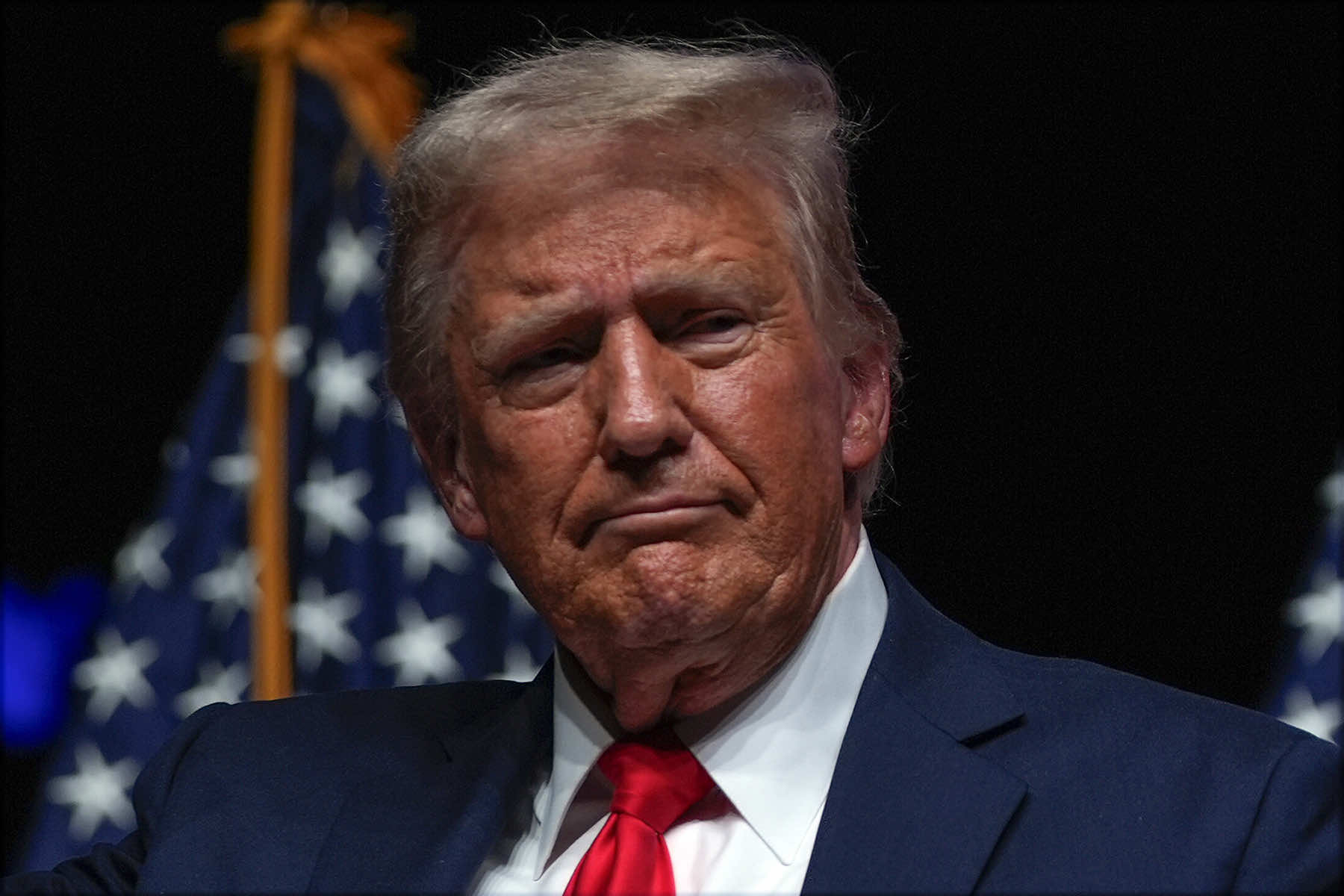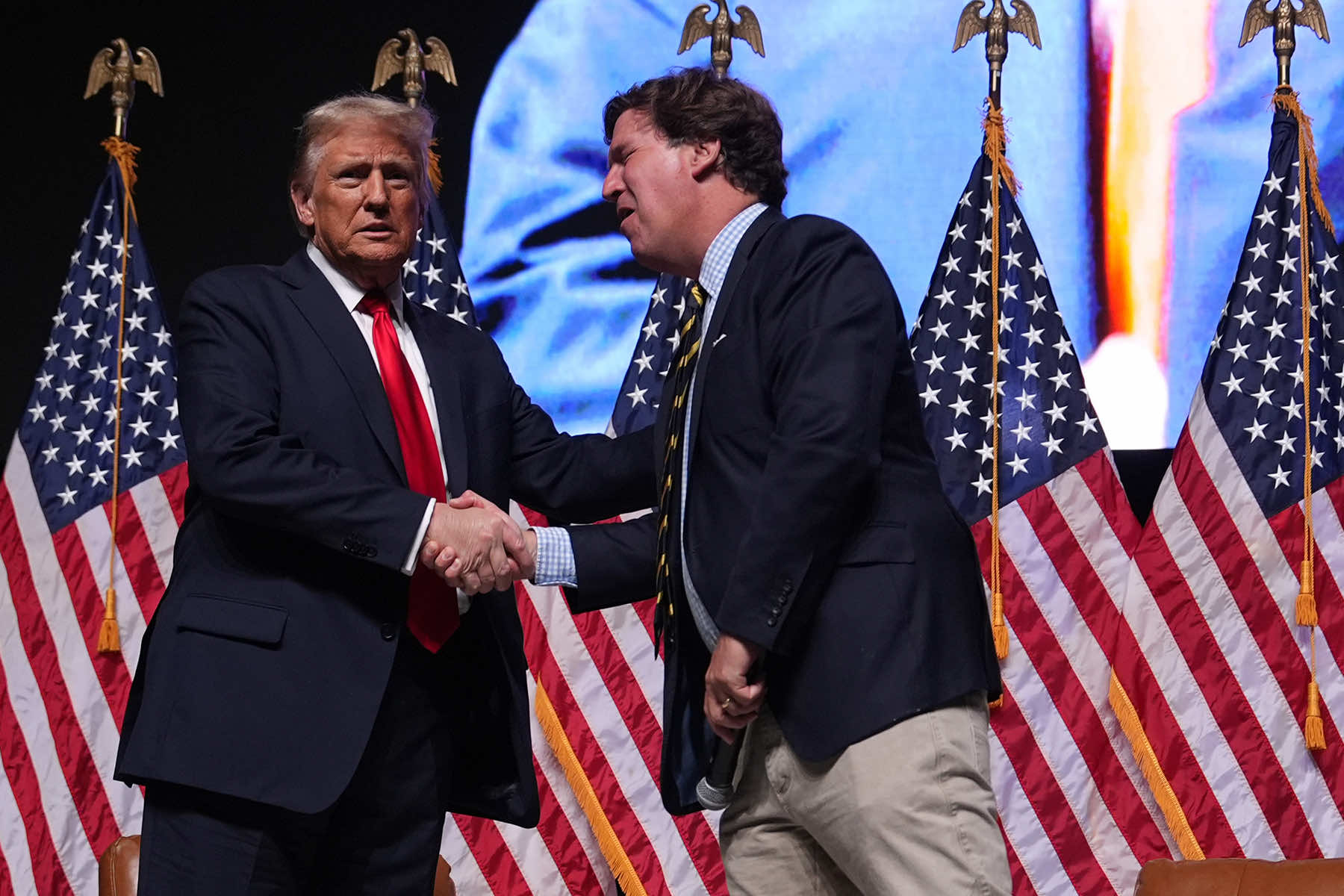
Convicted felon and aspirational dictator Donald Trump launched another attack on former U.S. Representative Liz Cheney on October 31, calling the prominent Republican critic and former Wyoming congresswoman a “war hawk” and suggesting that she should be killed for her opposition to him.
During an event in Glendale, Arizona, with former Fox News host Tucker Carlson, the Republican presidential candidate showed further signs of his mental instability when he was asked if it was weird to see Cheney campaign against him.
Cheney has vocally opposed Trump since his January 6, 2021, attack on the U.S. Capitol and attempted coup to overturn the 2020 election that he lost. She has also become a surrogate for his Democratic opponent, Vice President Kamala Harris, along with her father Dick Cheney, the former Vice President of the United States under George W. Bush.
Trump, who has intensified his inflammatory rhetoric in the final stretch of his floundering and hate-filled campaign, replied with a direct and graphic threat against Cheney.
“She’s a radical war hawk. Let’s put her with a rifle standing there with nine barrels shooting at her, OK?’ said Trump. “Let’s see how she feels about it, you know, when the guns are trained on her face.”
His statements have raised unprecedented concerns over the health of American democracy, as it marks the most overt call for violence against a political opponent by a modern U.S. political leader.
Trump’s rhetoric, according to critics, reflects tactics used historically by authoritarian leaders to consolidate power by silencing dissent and intimidating rivals, drawing uncomfortable parallels with the threats posed by dictatorships.
Responding to the threats, Cheney, who has long stood as a defender of traditional conservative values, issued a strong statement on the perilous path she believes Trump’s words could lead America down.
“This is how dictators destroy free nations. They threaten those who speak against them with death. We cannot entrust our country and our freedom to a petty, vindictive, cruel, unstable man who wants to be a tyrant.” – Liz Cheney, via social media
The Carlson interview highlighted the divide within the Republican Party, particularly between Trump’s radical MAGA base and those who reject his volatile, combative approach. Many of Trump’s allies and supporters continue to dismiss his violent rhetoric as hyperbole.
Critics argue that the tactic dangerously emboldens his followers.
“His supporters take his words literally,” a political observer noted, citing the events of January 6 as a prime example of how Trump’s rhetoric translates to real-world action. “To ignore this threat is to ignore the very foundation of our freedom.”
Experts have echoed Cheney’s warning, stressing that Trump’s language represents an existential threat to the country’s founding principles. Historians note that leaders who use threats of violence to stifle opposition typically erode democratic institutions, normalize extremism, and create environments ripe for authoritarianism.
The danger is compounded by the reality that, as seen on January 6, Trump’s supporters have shown a willingness to act on his words of hate, which many believe could lead to further political violence.
“This kind of rhetoric is unparalleled in U.S. history,” wrote a historian on social media. “In modern America, we have never before seen a leader openly threaten a former government official with execution. This is a shocking departure from democratic norms and represents a real and present danger to the stability of our political system.”
Trump’s MAGA-aligned allies continue to dismiss his violent language as jokes that should not be taken literally, urging the public to overlook what they describe as a “figure of speech.”
However, experts warn that this pattern of dismissing and downplaying such statements dangerously emboldens individuals who take Trump’s words literally. The rhetoric he employs not only undermines political discourse but actively incites hostility and violence toward opponents, setting a new and dangerous precedent.
As Trump escalates his language, Americans are confronted with the implications of his words for the nation’s future. The normalization of violent rhetoric has a documented history of destabilizing societies, and many analysts caution that ignoring these warning signs could lead to irreparable damage to the country’s democratic foundation. The November election is now framed as a referendum on the nation’s commitment to democracy versus a potential descent into authoritarianism.
The refusal by prominent Republican figures to condemn such threats is seen by some as a capitulation to authoritarianism, leading many to question whether the party of Lincoln can survive Trump’s unprecedented challenges to democracy.
Trump’s rise to a figurehead of unshakable loyalty has transformed not only the Republican Party but the political fabric of the United States, supported by the racist ideology behind his “Make America Great Again” campaign.
That loyalty has given Trump near-total control over the Republican Party, which has shed its traditional ideals in favor of unwavering support for him. To be a Republican today often means allegiance to Trump, not conservative values.
Trump’s supporters do not merely follow his policies, they adhere with a blind devotion reminiscent of authoritarian “cult of personality” leaders.
By stoking fears and framing his opponents as enemies of the American people, he has created an “us versus them” mindset that breeds division, to the delight of foreign adversaries like Russian dictator Putin.


















